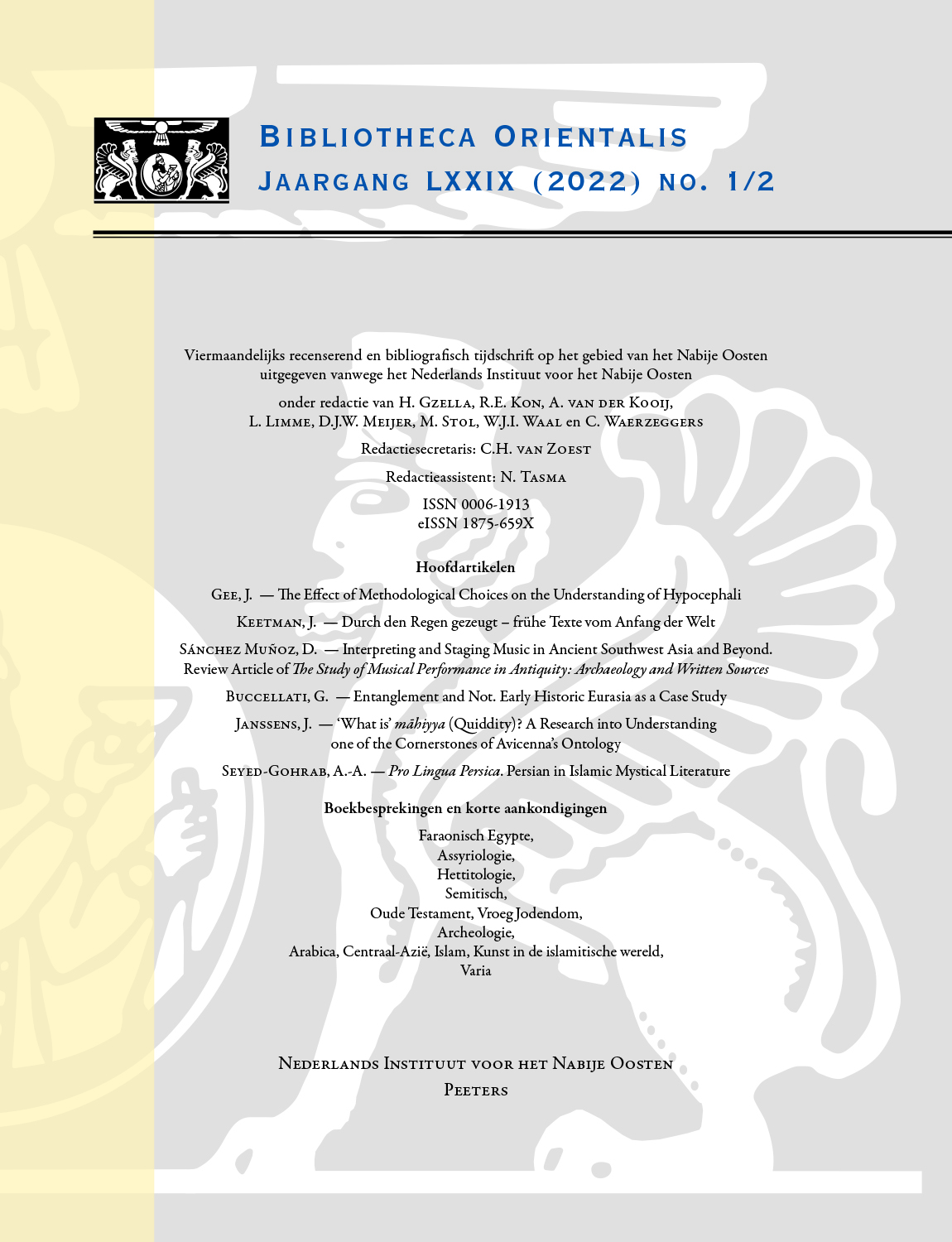 previous article in this issue previous article in this issue | next article in this issue  |

Preview first page |
Document Details : Title: The Return of the Soul in al-Ma'arrī's Luzūmiyyāt Author(s): SMOOR, Pieter Journal: Bibliotheca Orientalis Volume: 81 Issue: 3-4 Date: 2024 Pages: 214-268 DOI: 10.2143/BIOR.81.3.3294116 Abstract : The book Luzūm mā lā yalzam dictated by Aḥmad ibn Sulaymān Abū l-'Alā' (resident in the walled town of Ma'arrat al-Nu'mān) consists of a variegated collection of poems, each one ending on double rhyme or threefold rhyme assembled in metrical forms based on the classical Arab theory. It holds an amazing variety of ideas, sparked off by historical, theological, proverbial and linguistic themes, with allusions mystified by delusional digression, wandering away from the original subject. The researcher is navigating the complexities of belief versus unbelief. This article explores more extensively the perilous dilemma between orthodox staunch religiosity and its irreverent derision by rationalism. Admittedly, Ibn al-Rāwandī was one of those arch heretics who fascinated al-Ma'arrī in an enigmatical way, despite the poet’s clearly expressed rejection. Perhaps the far-fetched examples and sometimes inscrutable wording are due to the poet’s secret admiration for the heretic’s argument. In conclusion, one imagines that the poet succeeded in preserving his own soul 'alive'. He frequently describes Allah’s predestination overwhelming the human’s free choice, adducing the emigration of the soul from her companion, the body of sinfulness and decay. She wishes to leave her imprisonment: her stay in dense obscurity will change into a glorious sun-lit garden of eternity. However, her deserted body is worried by its lack of embalming material to conserve its ruined remains. Finally, one wonders if al-Ma'arrī, amidst his rationalist inclinations, also finds solace in the pronouncements of Ja'far al-Ṣādiq, the sixth Shī'ite Imām, whose wisdom may offer solutions to believers. |
|


